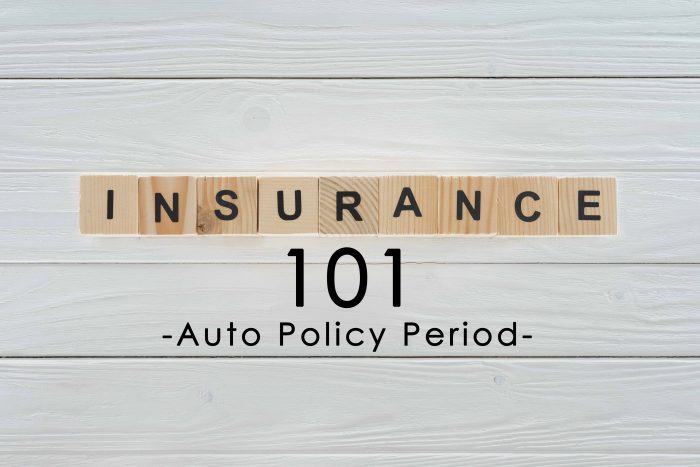Insurance Term of the Day: (Auto) Policy Period

Insurance Term of the Day: (Auto) Policy Period
Our calendars are flooded with important dates that we must remember. Birthdays, doctors appointments, kids’ sports games, the list is seemingly never ending. It’s understandable that one may lose track and forget an important date-unless it’s an anniversary. Good luck with that.
Aside from your anniversary, it’s also crucial to remember another date: the day your insurance policy expires. Insurance isn’t always the first thing on your mind. However, you should always bare in mind the policy period of your insurance contract.
What is a policy period? Every policy has a policy period that is clearly stated on your insurance declarations page. The policy period starts on the day the policy is issued, which can be any day of the month. A policy period is important because it gives the dates that the policy is in force. Any event that occurs before or after the policy period would not be covered by the insurance.
The length of a policy period is determined by your specific insurance company. There are a few options that most insurance companies offer: a six-month policy, a year-long policy, and, in special circumstances, a month to month policy. Starting from the effective date, you will have coverage for the following six months, so long as the bill is paid on time each month. If your bill is not paid, the policy will be cancelled, leaving you uninsured.
Another reason why policy periods are significant is because often, the policy period indicates the due date of your payments. Missing or forgetting this date could mean you miss a payment.
Where is the policy period located? You can typically find your policy period on your declarations page.
When looking at your policy period dates, don’t mistake the “policy date” with the “effective date.” The policy date is mentioned within the contract of your policy. For example, the policy date is used when discussing grace period expiration dates, etc. However, the “effective date” is the date that the insurance company became legally liable for you and your property.
What happens at renewal? When your policy term ends, you have the choice to renew your policy or shop around. If your insurance company chooses to non-renew you, you must find coverage elsewhere. Otherwise, you’re risking a lapse in coverage and an increase in rates.
Have you ever noticed that everything happens at the most peculiar time? Don’t be caught off guard without insurance by missing your renewal date.
Do you have questions about your insurance? Find an insurance agent near you with our Agent Finder
Search All Blogs
Search All Blogs
Read More Blogs
Let the Good Times Roll—Safely: Mardi Gras Liability for Your Business
Hosting a Mardi Gras party this Tuesday? Make sure your business has the right event liability and liquor coverage before the beads start flying.
The Business “Prenup”: Why Business Partners Need Life Insurance in February
Love your business partner? Protect your company with a Life Insurance-funded Buy-Sell agreement to ensure the business survives the unexpected.
Heading South? Insuring Your Mid-Winter Break Road Trip in February
Driving to find some sun this week? Check your roadside assistance and rental car coverage before you leave the driveway.
Spring Dreams, Winter Schemes: Updating Your Insurance Before Your Spring Renovation
Planning a Spring kitchen remodel? Learn why you need to call your insurance agent before the contractors arrive to ensure your project is covered.
Shadow or Spring? The Quirky Science and Folklore of Groundhog Day 2026
Will he see his shadow? Dive into the history and humor of Groundhog Day 2026 and why we still trust a rodent with our weather forecasts.
Stocked for Love: Protecting High-Value Valentine’s Inventory with Business Insurance
Is your Valentine’s stock protected? Ensure your business insurance accounts for the massive inventory surge happening in early February.
New Life, New Responsibility: Why a February Arrival Means Updating Your Policy
Welcoming a new family member this February? It’s time to move life insurance to the top of your to-do list to ensure your child’s future is secure.
Delivering Love: The Insurance Risks of Valentine’s Week Gig Work
Delivering flowers or chocolates for extra cash this Valentine’s? Make sure your car is actually insured for delivery work before you hit the road.
Tax Prep & Protection: Ensuring Your Home Office is Fully Insured for 2026
Prepping your taxes? Don’t forget to check your home office insurance. Your standard policy might not cover your professional gear or liability.
More Than Just a Sale: The Fascinating Evolution of Presidents’ Day
Why is Presidents’ Day on a Monday? Explore the history, the politics, and the trivia behind our mid-February celebration of national leadership.










